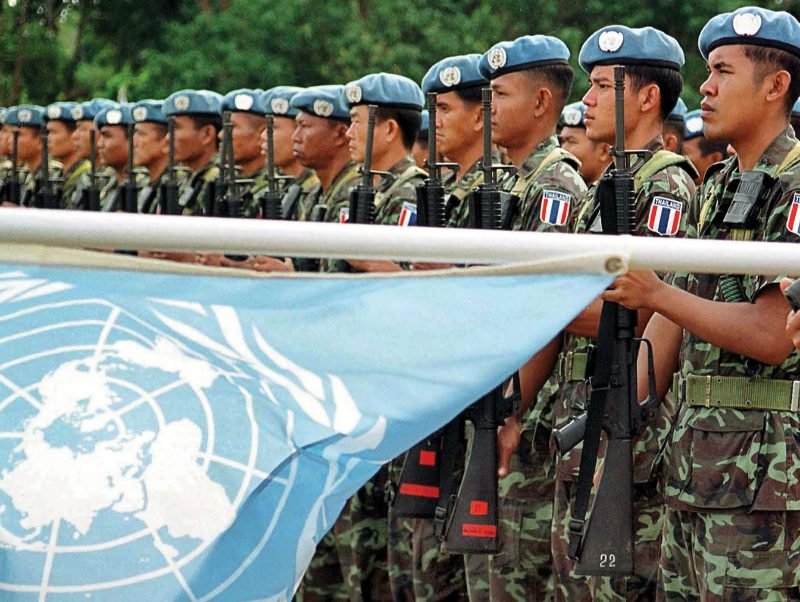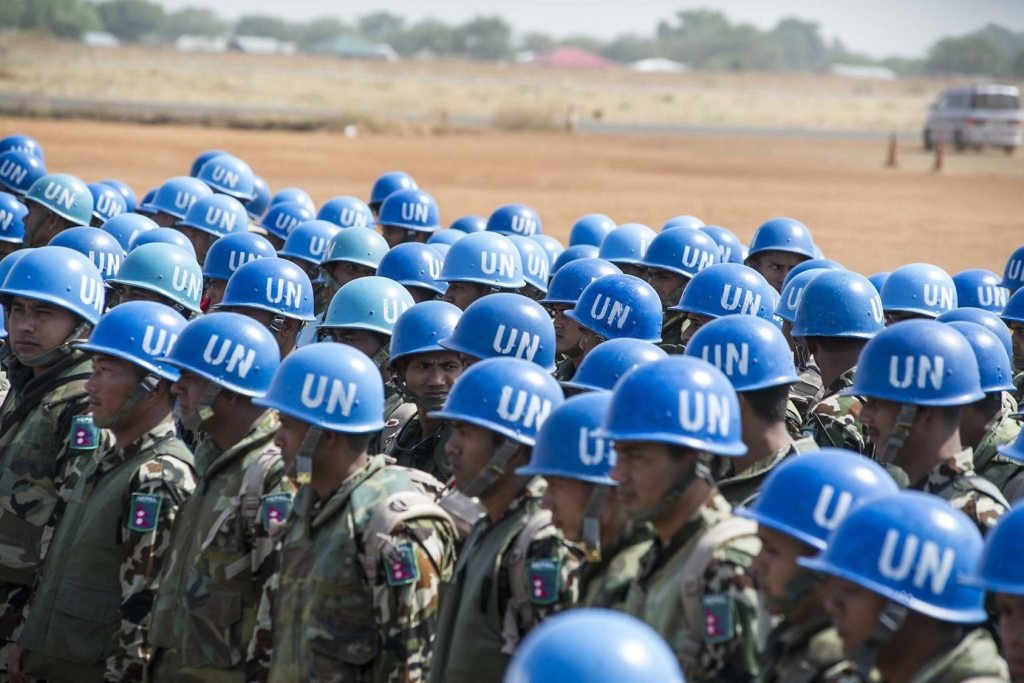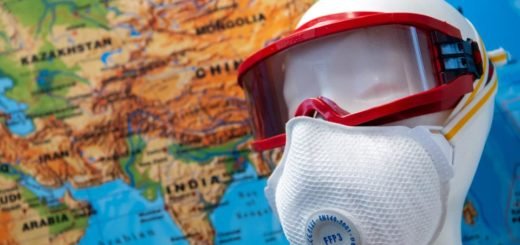Effectiveness of UN Peace Operations: Dynamics of composition of troops and diversity on UN peace operations

The United Service Institution of India (USI) and the Indian Council for World Affairs (ICWA) conducted a virtual seminar on “Effectiveness of UN Peace Operations: Dynamics of the composition of troops and diversity on UN peace operations” on 25th August 2021. USI and ICWA, have been collaborating on a series of webinars on UN peace operations. This webinar was the third in the series.
The webinar discussed the impact of the composition and diversity of peacekeepers drawn from different troop-contributing countries (TCC), their various socio-cultural practices and operational behaviour patterns on the UN peacekeeping operations. The importance of these factors is very well-known to practitioners, but not that much discussed in the academic circles. So, the webinar aimed to enhance the understanding of these issues for the researchers and thus, make intellectual contributions to enhance the effectiveness of UN peacekeeping operations by a major troop-contributing country like India.
Giving the welcome remarks, Gen PK Goswami (Retd), Dy Director (A&C) USI, introduced the speakers. He informed that USI has played a critical role in the furtherance of India’s UN peacekeeping endeavours. USI focuses on operational, policy and strategic issues of UN peacekeeping. USI has worked relentlessly and contributed to peacekeeping understandings globally. He also informed that ICWA has an objective aim to create an Indian perspective of international relations and to act as a repository of knowledge and thinking on foreign policy issues.

Mrs Vijay Thakur Singh, DG ICWA gave opening remarks and set the stage for further discussion. She mentioned how critical UN peacekeeping is for international peace and security. Being one of the oldest contributors to peacekeeping operations, India has contributed more than 2,50,000 troops in 49 peacekeeping missions over the years- cumulatively, the largest number of troop contributions from any country. Hence, India is a vast repository for learning best practices in peacekeeping. More recently, in March 2021, India contributed 200,000 Covid vaccines for UN peacekeeping personnel worldwide. This shows India’s deep commitment to peacekeeping. In August, India being the President of the UN Security Council has identified peacekeeping as one of the core issues. She drew attention to how peacekeeping has a multi-dimensional role in today’s time, as peacekeeping is called upon not only to maintain peace and security but also to facilitate political rights and restore law and order. But even as this transformation took place, the core values of UN Peacekeeping- Consent of the parties; Impartiality; Non-use of force except in self-defence and defence of the mandate- have been held onto by peacekeeping missions.
While introducing Dr Pernilla Ryden who is Director of Challenges Forum, Gen PK Goswami drew attention to the challenges faced in the regional conflicts since the 1990s and the resultant need for an intensified effort to analyse and reflect on the international community’s role in this new context. In this environment, the Challenges Forum was launched in 1996, with USI being one of its founding members. Today Challenger Forum is a global partnership of 24 countries and about peace operations organisations. It aims to bridge the divide at the policy and operational levels. In her keynote address, Dr Pernilla Ryden took a look back on how peacekeeping has transformed since 1st UN peacekeeping operation in May 1948- the United Nations Truce Supervision Organization (UNTSO). Now, since the Cold War, peacekeeping operations have become larger, more robust and increasingly complex. The dilemmas and challenges of UN peacekeeping in the 21st century are much diverse than they were before.
Moderator for the event, Maj Gen (Dr) A K Bardalai, who is a Distinguished Fellow of USI talked about the successes and unique contributions to conflict management by UN peace operations and the need to learn lessons from the failures of Rwanda, Somalia or former Yugoslavia. He talked about the reforms introduced by the UN to enhance the effectiveness of the UN peace operations. Bringing in the distinction between the often-confusing usage of ‘Effectiveness and Success’ in the context of a peacekeeping operation, he elaborated that success can be defined as achieving the mission mandate, which can be measured. On the other hand, effectiveness is the capability of producing a desired result or output.
Talking on the effect of the composition of troops and diversity on peacekeeping, Dr Chiara Ruffa, Associate Professor from Swedish Defense Academy brought in views of an academician, while Col (Dr) KK Sharma (Retd), Former Military Observer UNTAC, brought in perspectives of a practitioner on the same topic. Col K Kekre, Colonel CUNPK brought in the perspective of an Indian contingent commander on the effects of cultural, social and military ethos in peacekeeping.

Maj Gen (Dr) A K Bardalai (retd) also chaired the question-and-answer session and summarised the event. Closing remarks were given by Maj Gen BK Sharma (Retd), Director USI.
Hence, the speakers discussed how several strategic and organisational specific variables can impact the performance of UN peace operations, which are not homogeneous. Intangibles also include peacekeepers drawn from many Troop Contribution Countries (TCCs) with different military doctrines, cultural and societal backgrounds, operational ethos and proclivity towards mandate implementation. Speakers discussed how to convert the diverse composition of the mission in terms of peacekeeping contingents including police personnel from being a “baggage’ to rather becoming a “heritage” to make the performance at the operational level efficient. Hence, to enhance the effectiveness of UN peacekeeping, the speakers contributed to developing a better understanding of why a particular UN peace operation succeeds or fails.



















